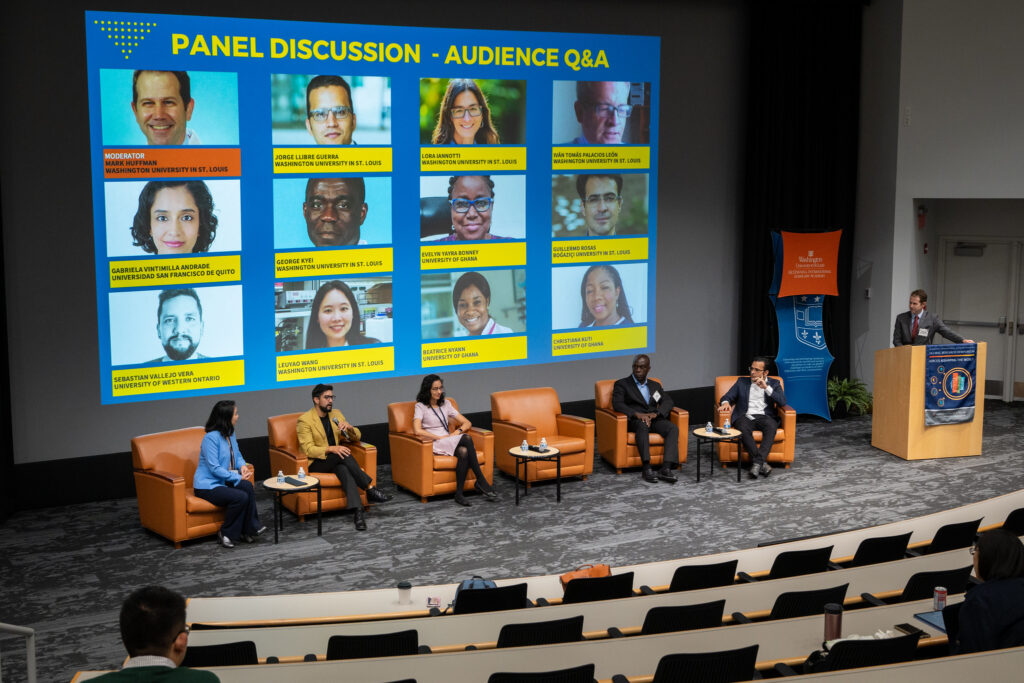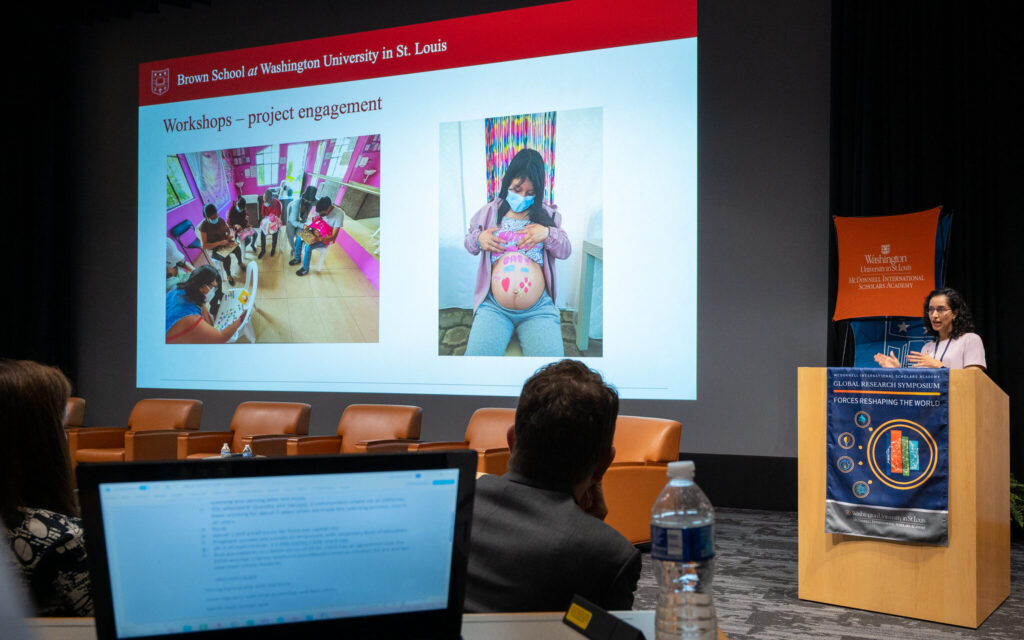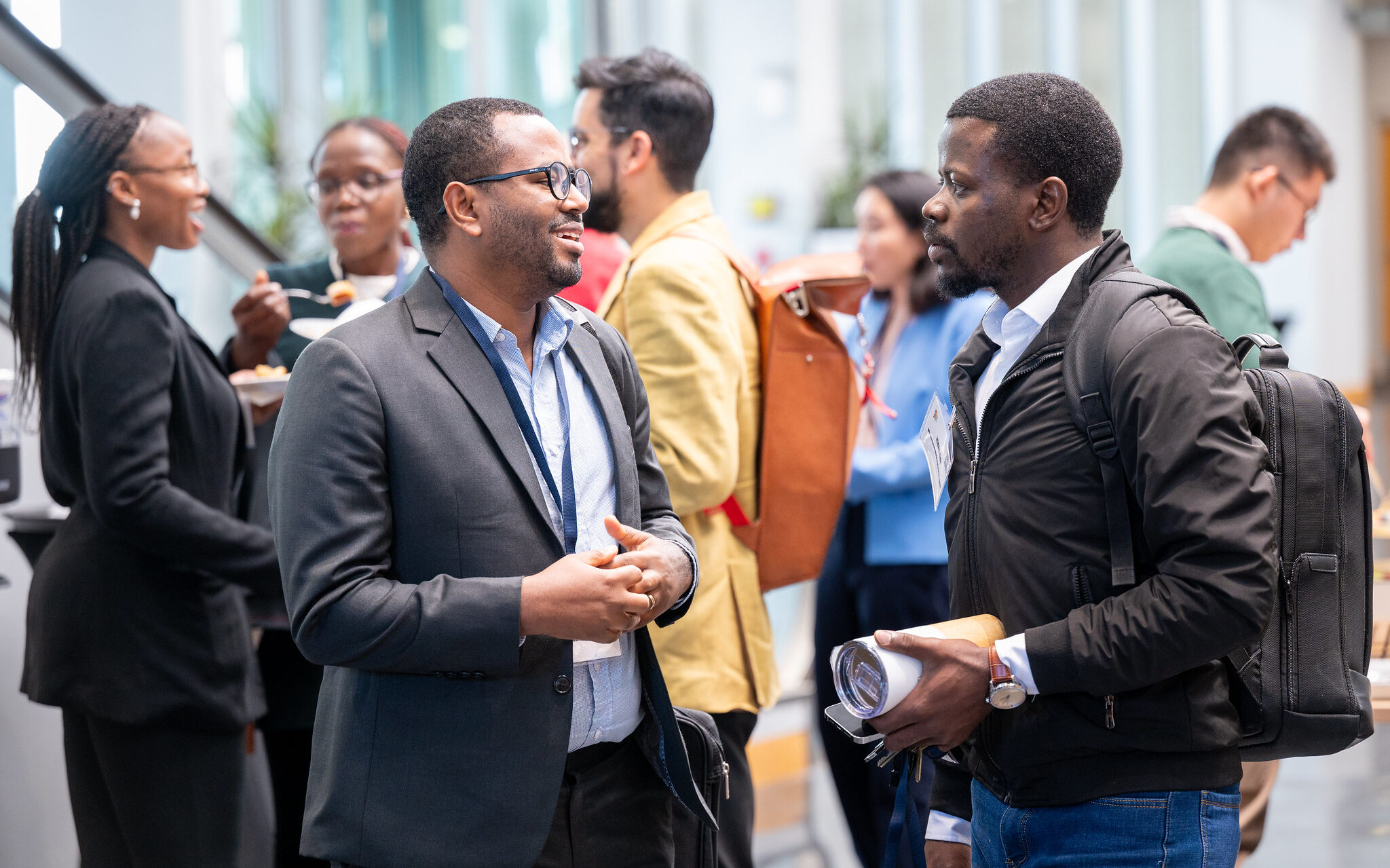October 7, 2023 | Allison Martinez, McDonnell Scholar

A small change can make a big difference. Mikhuna, a pilot clinical study in Ecuador, showed us the striking impact that a change in nutrition has on enhancing fetal growth and development. This is the result of the collaborative work of Lora Iannotti, professor at the Brown School at founder and director of the E3 Nutrition Lab at Washington University in St. Louis, Iván Tomás Palacios Leon, professor at School of Medicine at Universidad San Francisco de Quito, and Gabriela Vintimilla Andrade, doctoral research coordinator at the University San Francisco de Quito. Their study not only showed promising clinical results but also shed light on the importance of having a strong cultural awareness while performing research, a recurring theme throughout the Global Health Challenges session at the McDonnell Academy Global Research Symposium

McDonnell Scholar
Biomedical Engineering PhD student at McKelvey School of Engineering
Cultural Awareness is key
Strong cultural awareness fosters trust and cooperation with research participants, creating more open and meaningful connections that result in richer and more truthful data collection. Avoiding inadvertently marginalizing or misrepresenting certain groups can help minimize the health disparities around the globe. A fact that was shown by the work of Jorge Llibre Guerra, assistant professor of neurology at the School of Medicine at Washington University in St. Louis, and Marisol Londoño Castaño, professor of bioethics in research at the University of Antioquia School of Medicine, whose work is enhancing the use of medical genetic services and family counseling for Alzheimer’s disease in Latin America.

Representation in Research Matters
Highlighting the importance of representation in both the researchers and participants of a study was demonstrated in collaborative studies conducted by George Kyei, associate professor of medicine and associate professor of molecular microbiology at the School of Medicine at Washington University in St. Louis, and Evelyn Bonney, virologist and senior research fellow at the Noguchi Memorial Institute for Medical Research at the University of Ghana on finding a cure for HIV in Ghana. Their talk focused on ending the stigma associated with HIV and reflecting on how underrepresented Africa is in the setting of HIV research despite being the home of two-thirds of all people living with HIV. Today, their contribution “of the African people, by the African people, for the African people.”
On the heels of the topic of representation, the work of Leyao Wang, assistant professor in the Division of Allergy and Immunology at Washington University School of Medicine, Beatrice Irene Nyan, professor at the University of Ghana and head of the pediatrics department at the University of Ghana Medical Center, and Christiana Kuti, senior obstetrician/gynecologist at the University of Ghana Medical Center, showed the importance of interdisciplinary research by characterizing the infant nasal microbiome on a global scale. Their studies are not only molecular and developmental but also population-based, once again emphasizing the importance of having multiple perspectives through the collaboration of experts in diverse fields.

Interdisciplinary Research Facilitates Academic Advancement
Fostering a culture of interdisciplinary research is not only essential for academic advancement but also for addressing the most pressing global challenges of our time. The fascinating work of Guillermo Rosas, associate professor of political science in Arts & Sciences at Washington University in St. Louis, and Sebastián Vallejo Vera, assistant professor of political science at the University of Western Ontario showed that, once again, awareness is crucial not only for the execution of research but also for the delivery of the findings. Why should a scientist care about politics? A question, I am sure a lot of us have. Their collaboration showed how political ideology played a major role in the mitigation of the recent pandemic of COVID-19 in the Americas.
This was a session full of insightful discoveries and rich discussions. Every single one of these studies is the reflection of how embracing diversity in all its forms, and fostering collaboration across disciplines, not only empowers underrepresented communities and amplifies their voices but also fuels the collective intellect of humanity to tackle the intricate challenges that lie ahead. The synergy of diverse knowledge creates solutions that can change our world for the better.